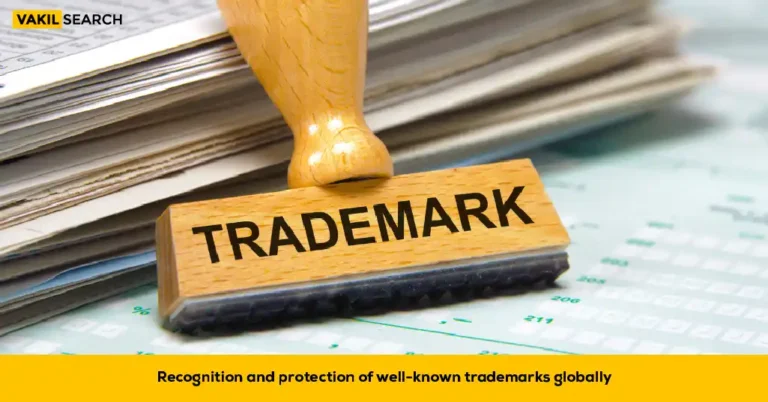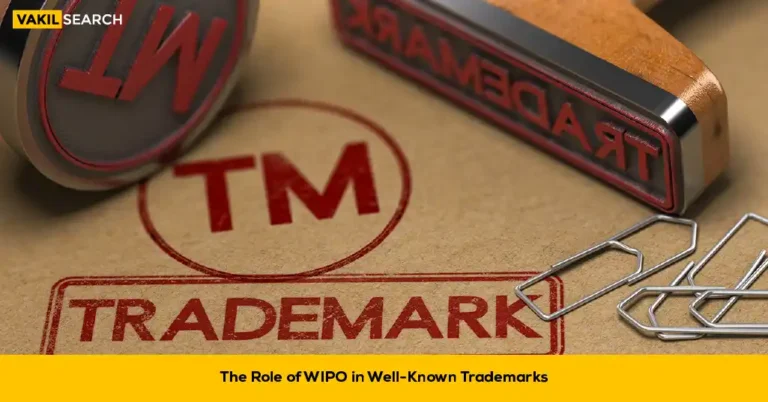The validity of a trademark in India typically lasts for ten years from the date of registration. However, it can be renewed indefinitely, ensuring long-term protection for your brand identity. Our blog discusses the details you need to know.
Introduction
When you hear of renowned brands like Apple, McDonald’s, or Tata, what comes to mind? A unique symbol or sign that identifies and differentiates them from other businesses. These are trademarks, which act as a brand’s identity in the market. But how long does a trademark last in India, and why is it essential to keep its registration active? Here you can learn about the validity of trademark in India
Trademark Protection | Validity of Trademark
In India, once a trademark is successfully registered, it is valid for a period of 10 years from the date of application. This means that for a decade, the registered trademark owner has exclusive rights to use the mark in relation to the goods or services for which it has been registered.
Trademark Renewal Process – Validity of Trademark
The protection is not indefinite but can be extended for successive periods of 10 years each. If the trademark owner wishes to keep the trademark active beyond the initial 10 years, they must apply for renewal. The renewal process is straightforward:
Filing of Renewal Application: A renewal request can be filed within one year before the expiry of the current registration or during the six-month grace period after expiration.
Payment of Renewal Fees: Along with the renewal application, a prescribed fee must be paid.
No Proof of Use Required: Unlike some jurisdictions, India does not demand any proof of use or affidavit of use for renewal.
Late Renewal: If the owner misses the renewal deadline, they can still renew their trademark within six months after expiry by paying an additional late fee.
Importance of Keeping the Registration Active
Maintaining an active trademark registration is crucial for several reasons:
Exclusive Rights: A valid registration ensures the owner’s exclusive right to the trademark, preventing others from using a deceptively similar mark for related goods or services.
Legal Protection: An active trademark registration provides better legal protection against infringement. Owners can take legal action against unauthorized users more effectively.
Asset Building: Over time, as a brand grows and gains reputation, its trademark becomes a significant asset. Keeping it active ensures this asset’s continuous appreciation.
Licensing and Franchising: An active trademark is essential for businesses looking to license or franchise their brand, as it ensures legal protection and credibility in the eyes of potential partners.
Challenges in Trademark Renewal
While the procedures for renewing a trademark in India might seem linear on paper, in practice, it can be filled with challenges. Here are a few that businesses often encounter:
Bureaucratic Delays: Government processes, at times, can be slow-moving. Despite timely filing, there could be administrative delays, affecting the speedy renewal of the trademark.
Oversight in Renewal: Businesses juggle a multitude of tasks daily. The renewal of a trademark, especially if it’s due in a distant future from its registration, can be overlooked. Missing the renewal window can lead to potential risks of losing exclusive rights to the trademark.
Change in Ownership Complexities: Transferring trademarks due to mergers, acquisitions, or other reasons introduces another layer of complexity to the renewal process. Ensuring the new owners have the rightful claim and complete documentation can sometimes be challenging.
Global Trademarks vs. Indian Trademarks
In the age of globalisation, it’s imperative to understand the nuances of trademark registration not just within the confines of a country but on an international scale.
Madrid Protocol: India’s accession to the Madrid Protocol allows businesses to protect their trademarks in several countries simultaneously by filing a single application. This international registration provides a bundle of national rights, making it easier for businesses to manage and extend protection to other member countries.
Differences in Protection: While the Madrid Protocol offers a more extensive geographical coverage, the protection afforded by a trademark registered only in India is limited to its borders. It’s essential for businesses operating internationally to be aware of these distinctions and decide where they need protection.
Best Practices for Trademark Management
To maximise the benefits derived from a trademark and ensure its continued protection, here are some best practices:
Periodic Checks: Regularly review and keep track of all your trademarks’ statuses. This practice helps ensure that no renewal dates are missed and that the trademarks are in good standing.
Vigilance Against Infringements: Stay vigilant against potential unauthorized uses of your mark. The earlier you detect an infringement, the easier it will be to take corrective actions.
Leverage Technology: Several tools and software can help businesses manage their trademarks efficiently. These tools can send reminders for renewals, track unauthorized uses, and streamline documentation.
Consult Professionals: Hiring a professional or consultancy specializing in trademark management can be beneficial. They bring expertise, can advise on global trademark strategies, and can act swiftly in case of disputes.
Conclusion
In the ever-evolving world of business, trademarks serve as the constant identifier of a brand’s reputation and quality. The Indian legal framework recognizes the importance of trademarks and provides mechanisms for their protection and renewal. It is imperative for businesses to be aware of the validity and ensure timely renewals to reap the benefits of trademark registration continuously.
FAQs on Validity of Trademark in India
How long is a trademark valid in India?
A trademark in India is valid for 10 years from the date of application.
Can a trademark be renewed indefinitely in India?
Yes, a trademark can be renewed indefinitely in 10-year intervals, provided the renewal fees are paid, and the necessary formalities are completed.
What happens if I don’t renew my trademark?
If a trademark is not renewed, its protection ceases. However, there is a grace period of six months post-expiration during which the owner can renew it with an additional late fee.
Do I need to prove the use of my trademark for renewal in India?
No, the Indian trademark renewal process does not require proof of use.
Can I renew my trademark before its expiration?
Yes, a renewal request can be filed within one year before the trademark's expiry.










